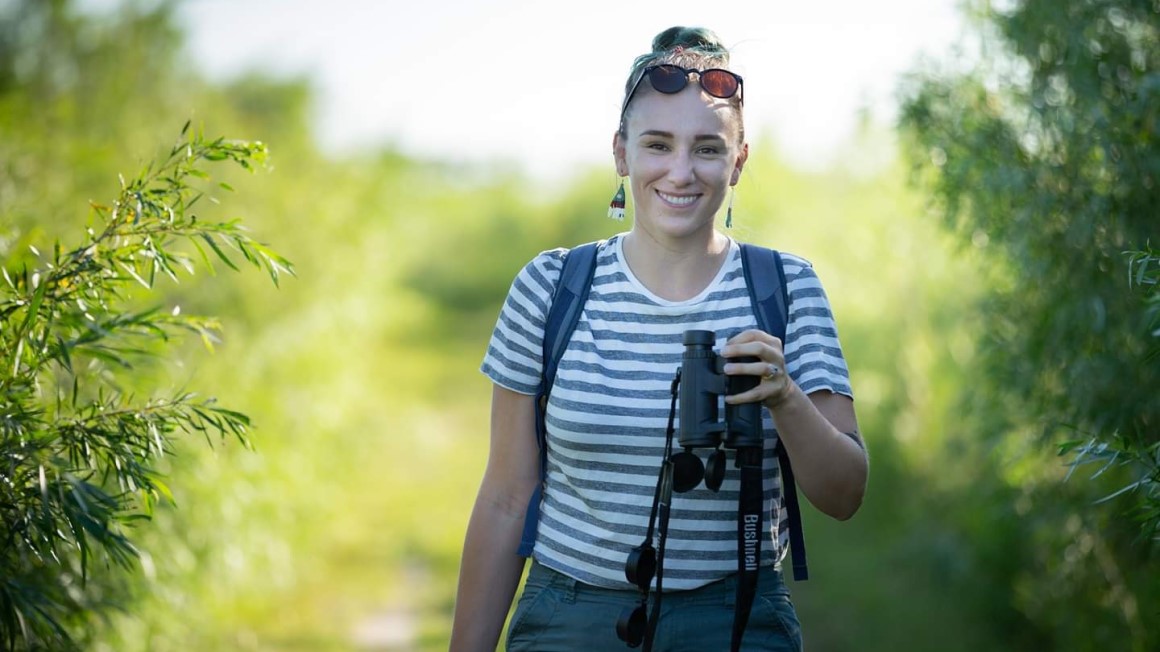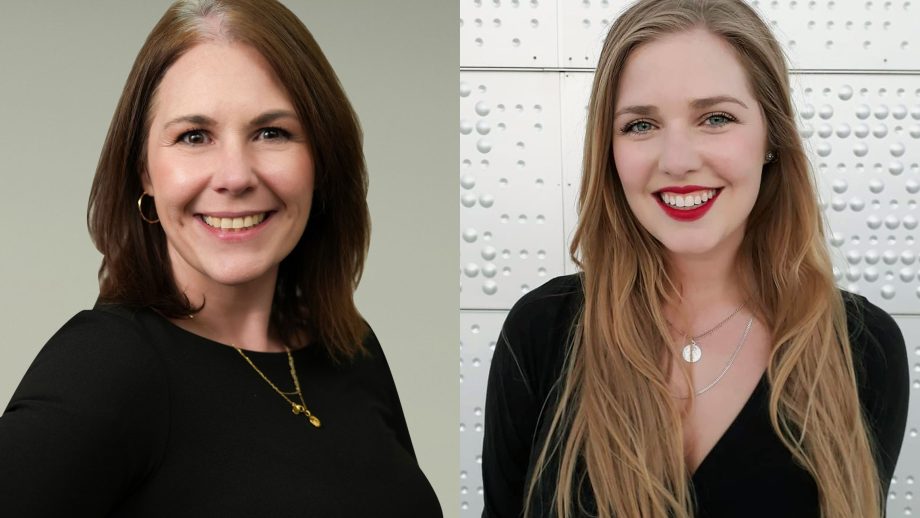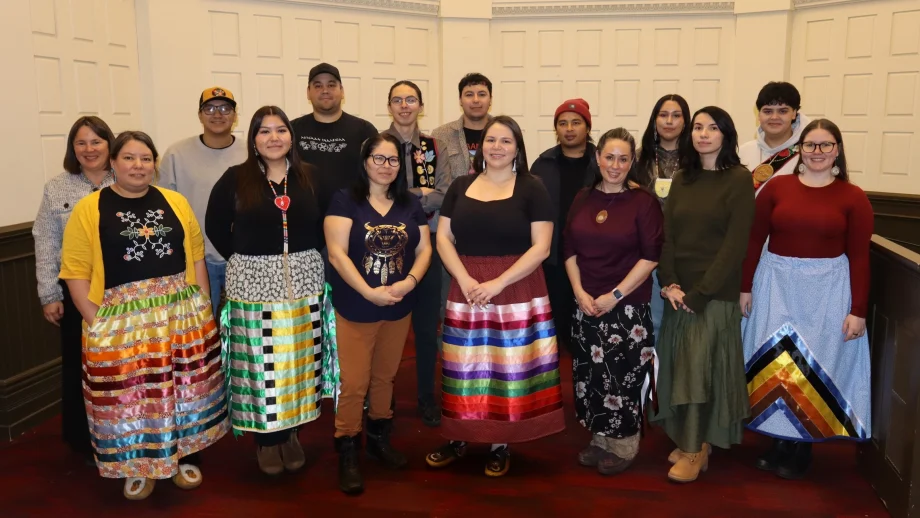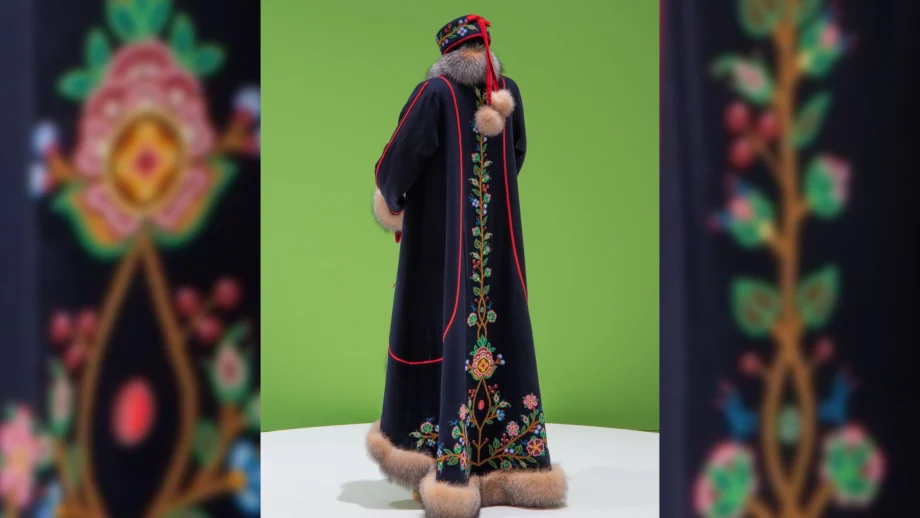University of Winnipeg alumna Danielle (Dani) Nowosad, who is Red River Métis (now transitioning from a MSc to a PhD at the University of Guelph), has been recognized with the Kishaadigeh “She Who Guards the Lodge” Award for her commitment to creating meaningful community connections and being an inspiring role model for other Indigenous learners.
I am honoured to be selected for this award as Dr. Cidro is a prolific facilitator of positive change and a huge source of inspiration for all Indigenous women.
Dani NowOsad
The award has a UWinnipeg connection. It was established in 2010 to honour Dr. Jaime Cidro, UWinnipeg’s Vice-President, Research and Innovation, and Canada Research Chair in Health and Culture, who previously served as an Indigenous student advisor at the University of Guelph.
“I am honoured to be selected for this award as Dr. Cidro is a prolific facilitator of positive change and a huge source of inspiration for all Indigenous women,” said Nowosad. “I am looking forward to continuing to work towards two-eyed seeing in academia and Indigenous inclusion in the sciences.”
Dr. Nora Casson, Canada Research Chair in Environmental Influences on Water Quality, Co-Director of UWinnipeg’s Prairie Climate Centre, and an Associate Professor in the Department of Geography, supported Nowosad’s application for the award.
“Dr. Cidro is a mentor and inspiration to Indigenous students, staff, and faculty, and I firmly believe that Dani is on the same trajectory,” said Casson. “I have no doubt that Dani will continue to be a leader and role model into the future.”
An exceptional record of community service
Nowosad was a student in Casson’s classes during her Bachelor of Science (Honours) in geography, and Casson supervised her as a research assistant and honours thesis student during the last two years of her degree.
“Dani is hardworking, passionate, and committed to understanding and communicating the ways in which northern ecosystems are threatened by human activities,” said Casson. “She has an exceptional record of community service, with particular emphasis on supporting other Indigenous students and in communicating her passion for arctic science.”
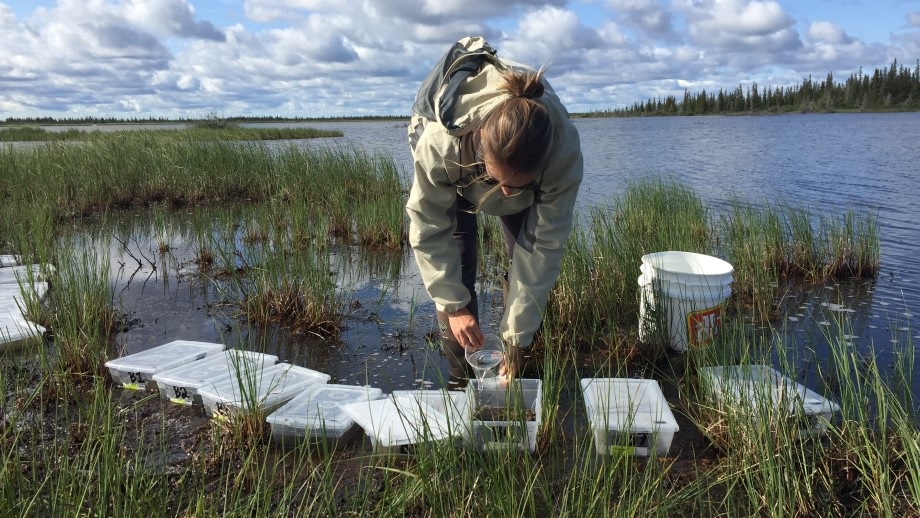
When Dani Nowosad was a student at UWinnipeg she spent her summers as a researcher in Churchill. Photo supplied.
During her undergrad, Nowosad received numerous awards in recognition of her dedication to environmental and sustainability issues, such as a prestigious NSERC Undergraduate Student Research Award, several Louis Riel bursaries, the Anna Rikkelman award for environmental volunteer efforts, and a UWinnipeg Campus Sustainability Recognition Award.
In addition to being an active community volunteer, she spent her summers working as a researcher at the Churchill Northern Studies Centre (CNSC). When she returned to school in the fall, she enthusiastically took on an independent research project, investigating nutrient uptake in subarctic pond sediments. This project resulted in several posters and conference presentations. The summer after she graduated from UWinnipeg, she completed a field season working for Polar Knowledge Canada at the Canadian High Arctic Research Station in Cambridge Bay before heading to the University of Guelph to pursue her masters.
She continues to actively engage in public communication and outreach, advocating for environmental education, conservation, and youth engagement in science. She has spearheaded a number of fundraisers, including collecting and distributing personal hygiene and menstrual products for youth in need in Cambridge Bay, NU; advocating for Métis students to apply for funding to ease the financial burden of post-secondary education; coordinating a month-long local art auction and weekly canoe nights to raise money for Black Lives Matter USA and Black Space Winnipeg; and assisting an Indigenous-led non-profit (Waterways Canada) in writing grant proposals which resulted in $25,000 in funding to expand canoe programing for Indigenous youth across Manitoba. These are just a few of the projects she’s involved in.
Casson was thrilled to learn that Nowosad was this year’s recipient.
“She has shown remarkable resiliency in the face of changes to her field work and to her thesis in light of the COVID-19 pandemic,” said Casson. “I have no doubt that the combination of her academic aptitude and exceptional work ethic will serve her well as she continues her career in science.”

